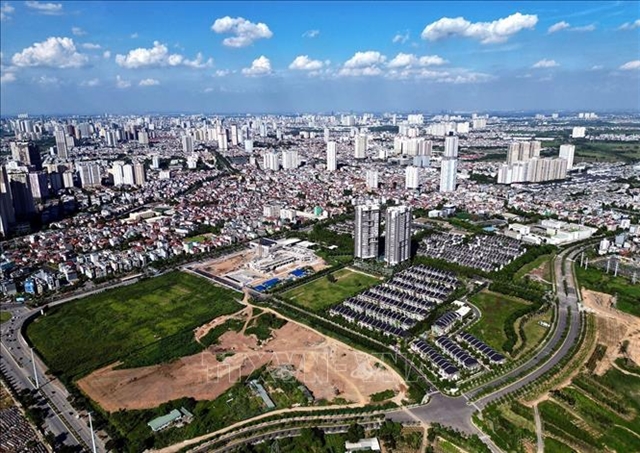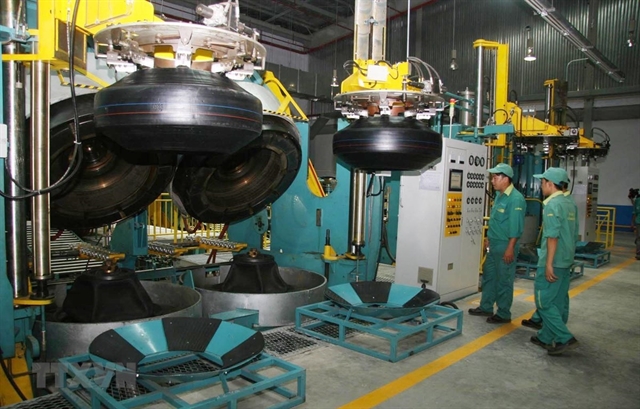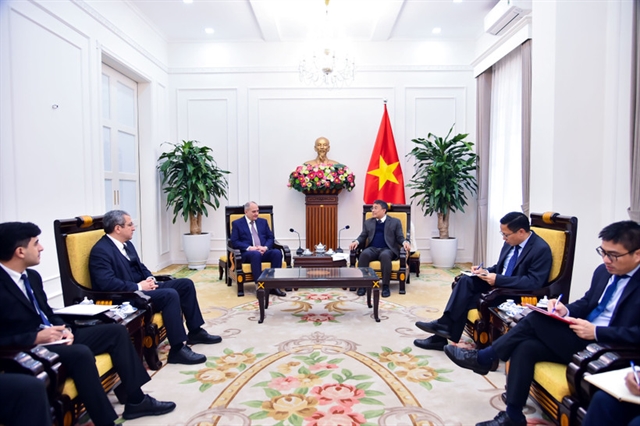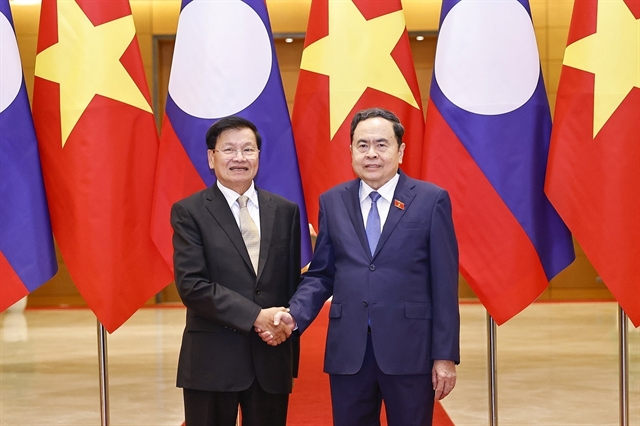 Economy
Economy


|
| Workers produce truck tyres in Liên Chiểu IZ, Đà Nẵng City. Most Vietnamese exporters are free from anti-dumping duties in the US. — VNA/VNS Photo Văn Sơn |
HÀ NỘI — The Ministry of Industry and Trade (MoIT) has announced that most Vietnamese exporters were not dumping car tyres in the United States as detailed in the preliminary investigation from the US Department of Commerce (DOC).
The MoIT said the US’ conclusion on dumping and subsidies for car tyres from Việt Nam and some other economies, which was released on December 30, declared tyre exporters of Việt Nam were free from anti-dumping measures, while other countries and territories were alleged to have dumped in the market and face tariffs of 14.24 per cent to 38.07 per cent for South Korea; 52.42 per cent to 98.44 per cent for Taiwan (China) and from 13.25 per cent to 22.21 per cent for Thailand.
With the results, large Vietnamese exporters such as Sailun, Kenda, Bridgestone, Kumho and Yokohama are all considered free of anti-dumping duties, while other local tyres were subject to the national tax rate of 22.3 per cent.
MoIT said: “It is a very positive result for Việt Nam's tyre manufacturing and exporting enterprises because the US is the largest and most important market for the tyre industry as turnover of non-dumping enterprises accounted for 95.5 per cent of the total export turnover of car tyres to the United States in 2019."
According to data from US customs, the turnover reached US$470 million in 2019.
The ministry said the DOC's determination created favourable conditions for Việt Nam to continue to export to the US, especially when domestic production was facing strong competition from China and Thailand.
In addition, the results also brought significant benefits to the local rubber industry and rubber farmers when a large amount of rubber exploited in Việt Nam is used to make tyres.
In the earlier conclusion, Vietnamese companies were considered to receive subsidies at a rate of between 6.23 per cent and 10.08 per cent, pushing the total preliminary tax rate with both dumping and subsidies to between 6.23 per cent and 29.04 per cent.
Tyre products of South Korea, Taiwan (China) and Thailand were set at a devaluation level of between 13.25 per cent and 98.44 per cent and they must deposit the corresponding amount when exporting their tyres to the US, said the MoIT, adding: “It is a significant competitive advantage for Vietnamese products in the US market.”
According to the ministry, they have worked closely with local exporters, recommending them to cooperate as much as possible to participate in the questions from the US from the time DOC was preparing to investigate the case last June.
It said the active participation of businesses plays an important role in responding to cases, adding: “Enterprises enjoying low anti-dumping tax in the preliminary conclusion were those which actively responded and coordinated with DOC in providing information.”
Although the above results were positive, MoIT considered it a preliminary stage, mentioning the continued close cooperation with the DOC would be a condition to keep this result in the final conclusion.
The ministry would continue to coordinate with relevant agencies and businesses to continue responding to the incident to ensure positive results to support the tyre manufacturing enterprises and exporters of Việt Nam.
For the content of the subsidy investigation, MoIT would coordinate with the State Bank of Việt Nam a(SBV), related cities and provinces and lawyers to continue to struggle against unfavourable conclusions at the preliminary stage of the incident.
Regarding monetary content, in a recent report by the United States Trade Representative (USTR) on the issue of undervalued currency in the framework of an investigation under Article 301 of the Commercial Act, the USTR did not mention or recommend the US Government to impose tariffs or use sanctions on Việt Nam's exported goods.
MoIT considered it a very positive result, reflecting a long-term and comprehensive struggle, demonstrating the active role of agencies in charge and focal points for handling such as MoIT, SBV, other ministries and related sectors and localities.
It is expected that the DOC will issue a final conclusion of the case on May 14. — VNS





 Brandinfo
Brandinfo